Chemotherapy underdosing bungle: What price for a life?
FIVE of the victims of the chemotherapy underdosing bungle and their families are dismayed by Friday’s resignation of SA Health chief David Swan, fearing they have lost a compassionate ally.
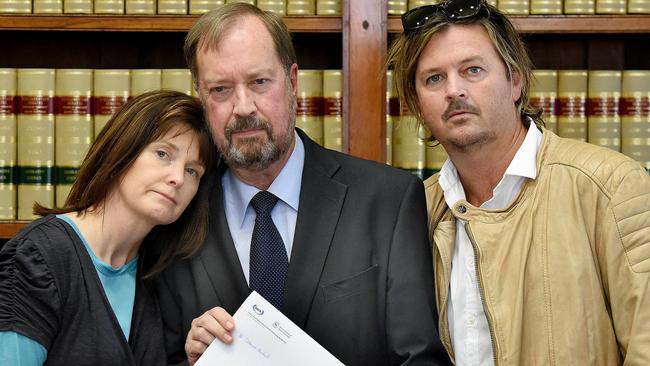
SA News
Don't miss out on the headlines from SA News. Followed categories will be added to My News.
- Government insurer caves in and agrees to meet legal costs of chemotherapy bungle victim Chris McRae
- Lawyer calls for inquiry into Royal Adelaide Hospital chemotherapy bungle
- Chemo bungle compensation claims to be rushed through, SA Health Minister Jack Snelling says
- How ‘typo’ denied cancer patients full treatment at Adelaide’s two major hospitals
FIVE of the victims of the chemotherapy underdosing bungle and their families are dismayed by Friday’s resignation of SA Health chief David Swan, fearing they have lost a compassionate ally.
Spokesman Andrew Knox, who was wrongly treated days after the mistake was discovered last year but is in remission, said they were sad they had lost “the only person who we think genuinely cares about us”.
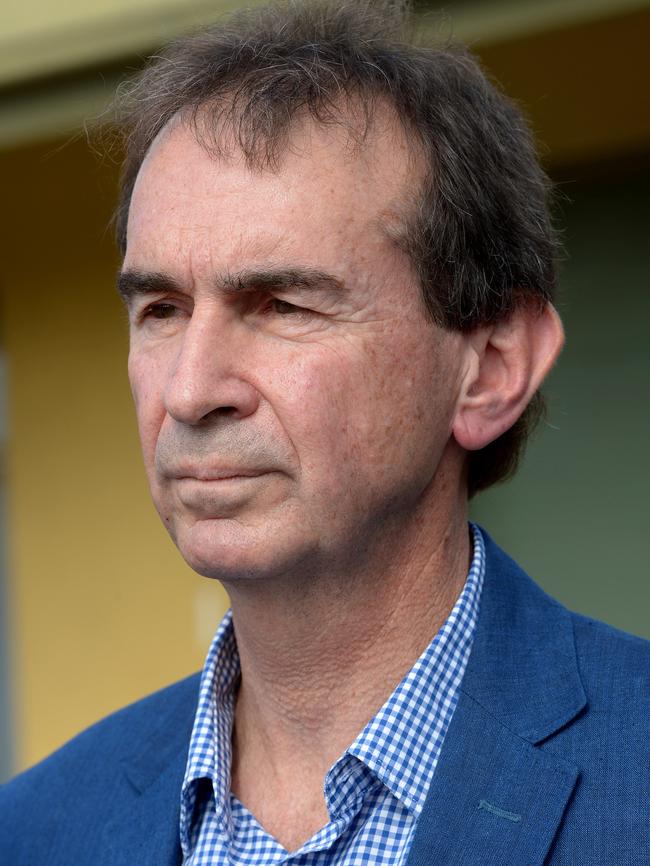
“I found him to be a remarkably compassionate human being.”
While Mr Swan is moving to the private sector, another scalp had already been claimed — RAH head of cancer Peter Bardy resigned his position in March.
His departure as clinical director of cancer for CALHN, the Central Adelaide Local Health Network, was welcomed by Mr Knox, who said Professor Bardy appeared to have “written off” the families when news of the bungle broke.
“He had the callousness to stand there and talk about the relapse rate in a way that caused us terrible distress,” he said.
“Any fair-minded and reasonable medical manager would not have done that and caused such anguish to the families.”
He said that after Professor Bardy’s comments on August 1 last year, patients felt discarded by the health system.
“We felt that public relations and the interests of the risk managers were paramount and our lives were worthless, and that of our families,” he said.
Mr Knox said he was so upset by Professor Bardy’s comments he contacted The Advertiser, which led to the second mistake being uncovered, and to Mr Knox, an industrial advocate, representing five of the victims and their families.
“If (Professor Bardy) had not done that I probably just would have stayed tired and sick and ill and not responded,” he said. “What a thing to put the families through. We were all destroyed. He seemed to have complete disregard for the welfare of the victims and their families.”
The five victims and their families this week reluctantly accepted the State Government’s offer of $100,000 compensation, saying they could not commit their families to years of bitter litigation.
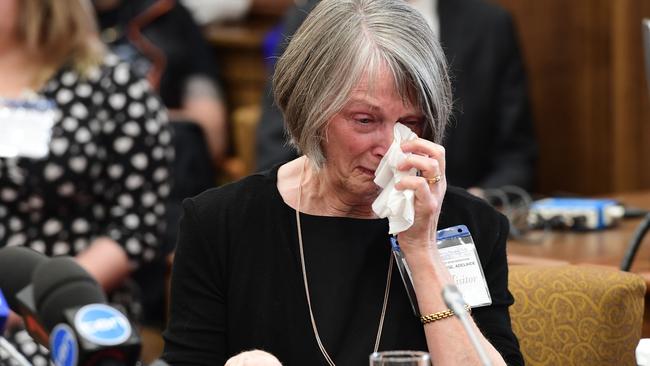
In August last year, The Advertiser revealed 10 acute myeloid leukaemia patients at the state’s two biggest hospitals, the Royal Adelaide Hospital and Flinders Medical Centre, received only half the recommended dose of the chemotherapy drug Cytarabine between July 2014 and January 2015.
Mr Knox said Professor Bardy’s resignation had been directly linked to the chemotherapy bungle in a communication to him from the office of Health Minister, Jack Snelling.
SA Health confirmed the cancer role will be temporarily filled until next January by Professor Graeme Russ who also heads CALHN’s renal services.
Calls for a judicial inquiry or royal commission into the chemotherapy bungle continued on Friday, with a lawyer for one of the 10 victims saying cancer patients were vulnerable and placed their lives in the hands of their doctors.
Graham Harbord, managing director of Johnston Withers, said an inquiry could lead to safeguards that would prevent another chemotherapy error, and a better compensation process.
“Usually a trial will not take place within 12 months of formulating a claim, by which time the victim may have died from his or her condition,” Mr Harbord said. “In that case, the compensation would be minimal.”
Professor Villis Marshall who headed the independent inquiry that earlier this year found serious fault with the RAH in particular, wants SA Health to implement a program to make sure problems of governance failure — and the subsequent “cover up” by the RAH — are rectified.
“If all of those things were corrected, then I think the system would be significantly safer, and hence improved,” Professor Marshall said.
“It may be appropriate for the department to have some process of checking the recommendations were, or have been, or planned to be put in place.”
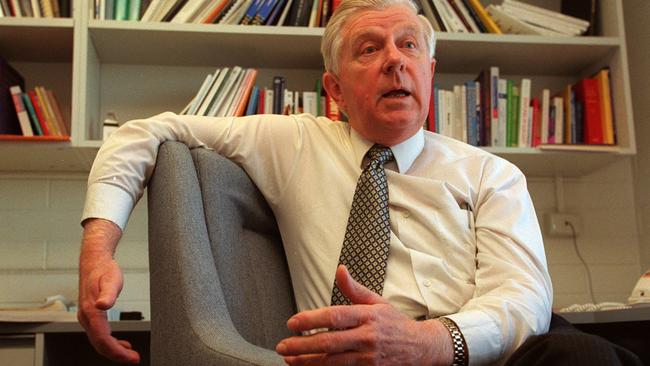
In February, Mr Snelling acted on Professor Marshall’s recommendation that “relevant clinicians” be referred to AHPRA, but the inquiry could take 12 months and the results will be secret.
Mr Knox and another patient on Friday gave evidence to a separate inquiry by the Australian Commission on Safety and Quality in Health Care, which Professor Marshall chairs, into the prostate cancer debacle which left 100 SA men wrongly fearing they had cancer.
Mr Knox said he and another patient told the commission what had happened to them after the chemotherapy error was found.
“(It was about) how we were told and how we were cared for,” he said.
As if to demonstrate the governance failures found by Professor Marshall, it has since been revealed the RAH gave incorrect information about ethical clearance of the new Cytarabine dose to Professor Marshall’s inquiry.
One of his major findings criticised the RAH for using a non-standard protocol — one not cleared by an ethics committee — without informed patient consent. In fact, use of the drug was approved, but the RAH did not know it, undermining Professor Marshall’s recommendations.
Professor Marshall, whose inquiry has wound up, said he was surprised by this.
“I would have expected that if the governance was correct, it would have been possible to have produced this, particularly as it was known that there was going to be an external review,” he said. “It really, I guess, fits into that situation of a system that didn’t have the robust governance we might have anticipated.”
The 10 patients, or their families, this week accepted a $100,000 settlement each, bringing the compensation fight to a close. Mr Knox said he was crushed by the process and five of the families were “too tired, too sick or deceased” to continue fighting.
He said a judicial inquiry was still needed and Professor Marshall’s Commission did not have judicial powers to fully examine safety issues around the chemotherapy, or the prostate bungle.
“It’s the conduct once errors have been made, not necessarily the making of the error,” he said. “It’s putting lives at risk, that’s why there needs to be a Royal Commission or a judicial inquiry.”
State Opposition Leader Steven Marshall also wants a judicial inquiry looking at the chemotherapy bungle, the prostate bungle, and the BreastScreen SA debacle.
“The Government doesn’t seem to have systems in place to ensure the safety of the people of this state,” he said.
The prostate screening debacle will overlap in the hearings of the Legislative Council select committee headed by Andrew McLachlan, which announced this week it would hear evidence from prostate patients as well.
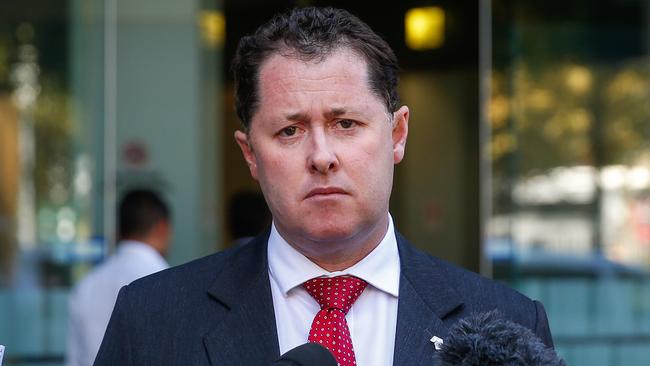
It’s a shabby shambles of own making
HOW does a 14-year-old government stumble like this?
The chemotherapy bungle, more of a scandal of late, came to light internally in January last year.
A red flag alert went to the minister and his office was prepared if a story broke.
It did, by me, in August last year when a relapsed acute myeloid leukaemia patient, Chris McRae, finalised negotiations with the Royal Adelaide Hospital.
Their offer had opened at $5000 each for Mr McRae and his wife Natalie and climbed to $9000, a paltry sum in the circumstances, and they paid their own legal bill.
Once that was final, news could get out.
No one in Jack Snelling’s office was surprised. They got out their briefing notes and dealt with it well. Jack Snelling admitted the chemotherapy error and apologised for it.
A few days later, the issue slipped out of control when I learnt that one patient, Andrew Knox, had his final half dose of Cytarabine three days after the mistake was uncovered.
Why hadn’t the RAH notified FMC? An inquiry was ordered and the heat was off. Temporarily.
The Marshall report found serious governance issues and failures to disclose — stuff-ups followed by cover-ups — and made recommendations that included referring relevant clinicians to the professional standards board, AHPRA.
Things sat like this until the select committee’s inquiry was due to begin this month.
I learnt that another patient, Bronte Higham, was gravely ill and did not have long to live.
His attempts to get compensation were being handled brutally by insurer SAICORP, which told him and Mr Knox to lodge individual claims.
One man was dying and there was no suggestion legal bills would be paid.
The emotional weight of Mr Higham’s presence, a “dead man walking” at the inquiry, still without compensation, was profound
Jay Weatherill stepped in to say lump sums would be offered instead of fought for.
This week that clear line of sight was lost.
SAICORP — not an outside insurance agency but the Government’s own self-insurer — made an offer, but docked the McRaes the $18,000 already paid.
Five of the families took legal advice and were told to push for more.
Mr Weatherill said there was no ultimatum but SAICORP acted as if there was, telling them, in effect, to take it or leave it.
Mr Weatherill said legal fees were always going to be paid but what about the McRae’s?
Like blood out of a stone, on Thursday afternoon SAICORP agreed.
Meanwhile, the AHPRA inquiry is secret and will remain so.
The fate of Marshall’s recommendations are unknown.
Compensation has been dealt with slowly and messily.
And because the patients were treated so shabbily, a problem of medical mismanagement that was handled well at the beginning collapsed into a political mess.
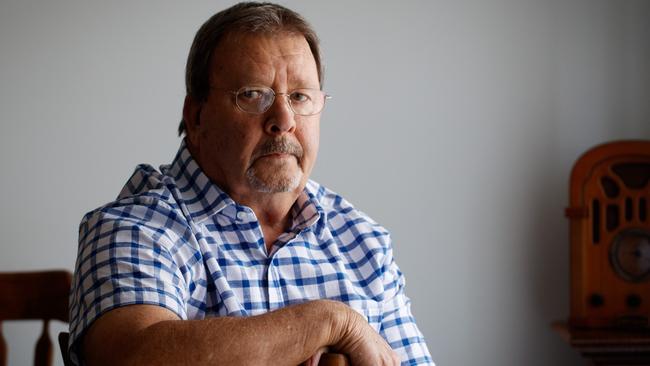
How the scandal unfolded
August 1, 2015: The Advertiser reveals 10 seriously ill patients received half the proper chemotherapy dose at two major hospitals because of a “typo” in the system.
August 5: Inquiry ordered after The Advertiser reveals one patient wrongly dosed at FMC three days after the mistake was uncovered at RAH.
November 27: Inquiry finds significant clinical governance failures, failure to follow guidelines in using non-standard protocol, inadequate supervision, failure of certain clinical staff to report and lodge the incident, tell patients what happened, or respond clinically.
November 27: Andrew Knox reveals he was one of the 10 patients and is in remission but fears for his health.
February 8, 2016: Eight clinicians involved in the underdosing scandal are referred to the national regulator for potential disciplinary action, SA Health Minister tells Parliament.
February 24: Legislative Council select committee established.
May 28: Cancer patient Bronte Higham tells The Advertiser he has only weeks to live and is still waiting for an apology and compensation.
June 1: Premier Jay Weatherill promises offers of compensation will be made.
June 6: Offers of $100,000 each sent to victims or their families with the promise that legal fees to be paid
June 8: One family docked $18,000 for previous settlement, legal fees not paid.
June 10: Family’s legal fees to be paid. Judicial inquiry called for.
June 11. Head of SA Health, David Swan, resigns. RAH head of cancer, Dr Peter Bardy, has also resigned.


